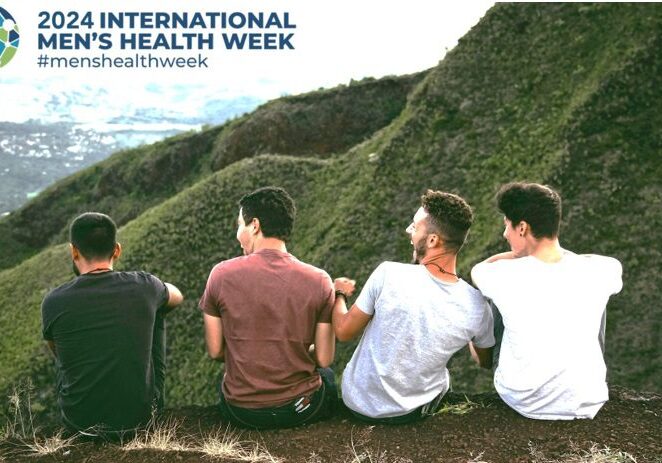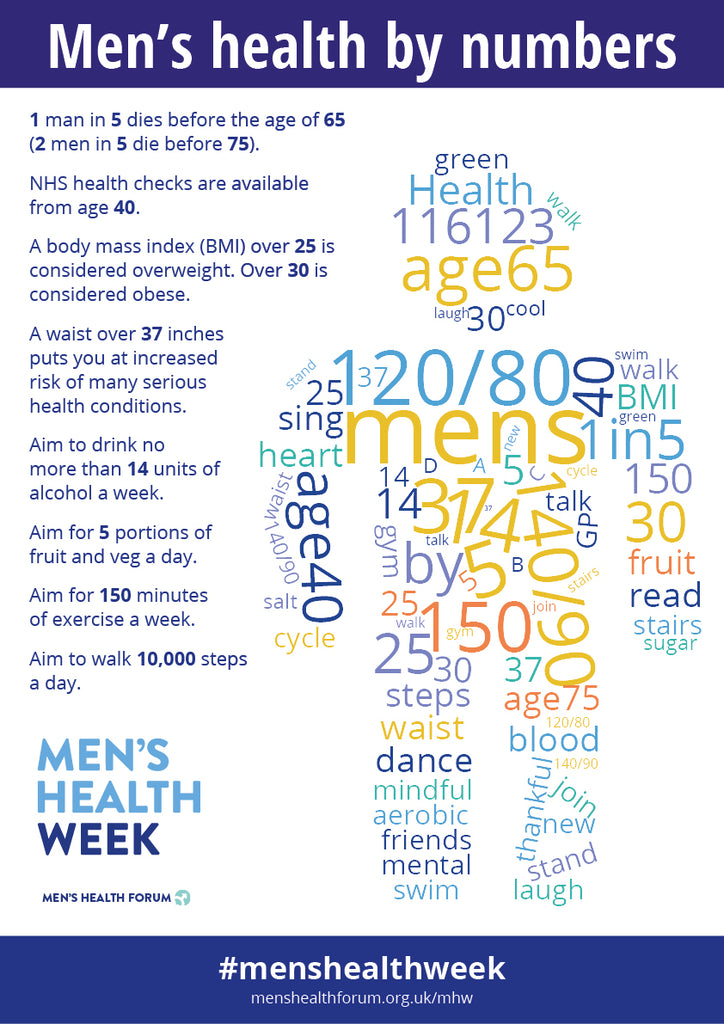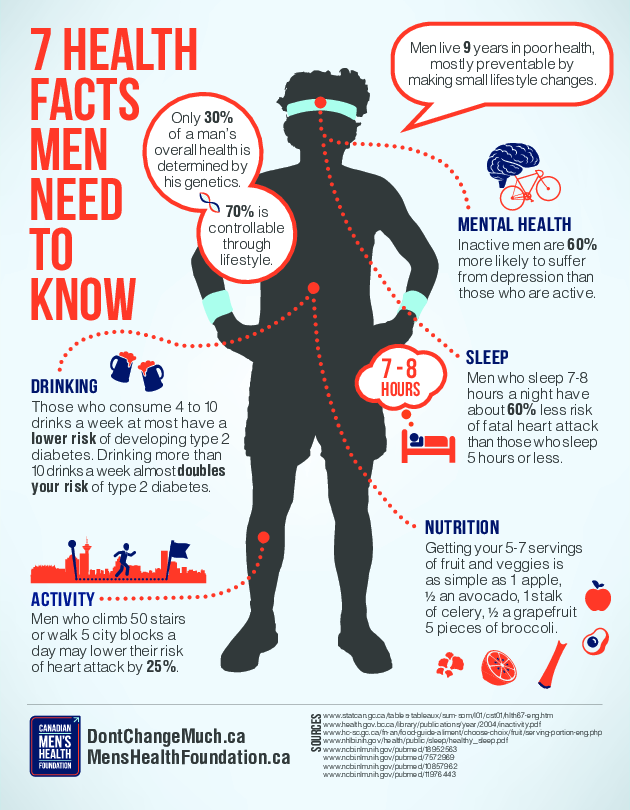Men’s Health Week in June

As we participate in International Men’s Health Week leading up to Father’s Day, it is important to understand what that means and how men can take charge of their health. Unfortunately, men are significantly less likely than women to see a doctor or report symptoms to a health care provider. Only 60 percent of men go to the doctor for a yearly, routine check-up, and 40 percent will not go until something is seriously wrong.
Other Key Facts About Men’s Health to Know
- The overall mortality rate is 41 percent higher for men than for women
- 8 out of 10 leading causes of death for men: heart disease, cancer, stroke, and diabetes
- 31 percent of men suffer depression in their lifetime and 9 percent of men have daily feelings of depression or anxiety; only a quarter of men talk to a mental health professional, and only 1/3 take medication. Pay attention to signs of depression and do not be afraid to ask for help.
- Prostate cancer is the second leading cause of cancer deaths for men in the United States. A man is 2 to 3 times more likely to get prostate cancer if his father, brother, or son had it. Talk to your doctor about checking your PSA and DRE levels.
The American Institute of Cancer Research’s Cancer Fighting Foods
No single food can protect you against cancer itself.
However, research shows that a diet filled with a variety of vegetables, fruits, whole grains, beans, and other plant foods helps lower the risk of cancer. Laboratory studies prove that many individual minerals, vitamins, and phytochemicals demonstrate anti-cancer effects. By including more colorful foods that fight cancer in your diet, you will help reduce your risk of developing cancer. Remember to eat the rainbow!
Limit These Foods to Reduce Risk of Cancer
Many of us grow up eating foods that might be okay to eat but are not necessarily the best in our diet. As you build your meal plans to support men’s health, make sure you are not overdoing it with foods that are best to have in small portions. Excessive consumption of alcohol, processed meats, red meats, and sugar-sweetened drinks can all increase your risk of cancer. If you don’t know quite where to start with making some lifestyle changes regarding your diet, working with a nutritionist, registered dietitian, and a personal chef from Honest to Goodness will guide you in the best direction to help with your weekly meal preps!
In our upcoming blogs, we will highlight diets that the American Institute of Cancer Research has researched. STAY TUNED!





